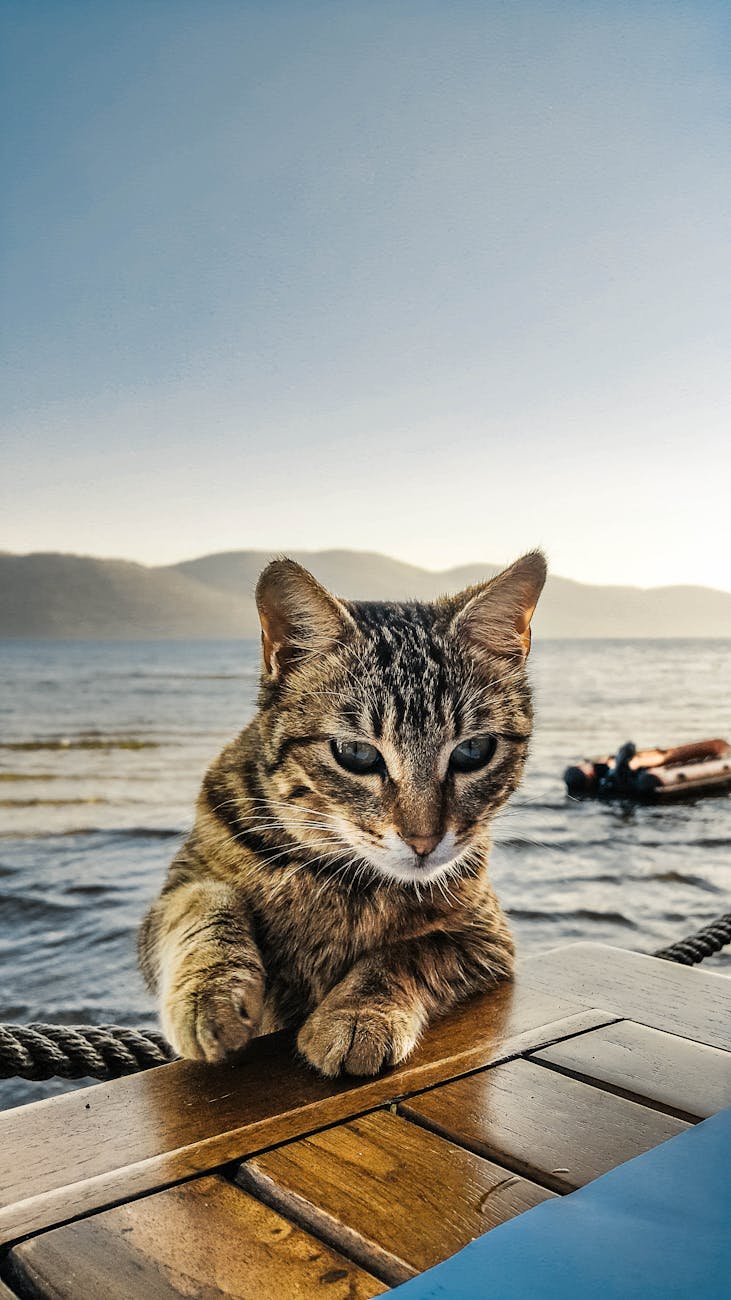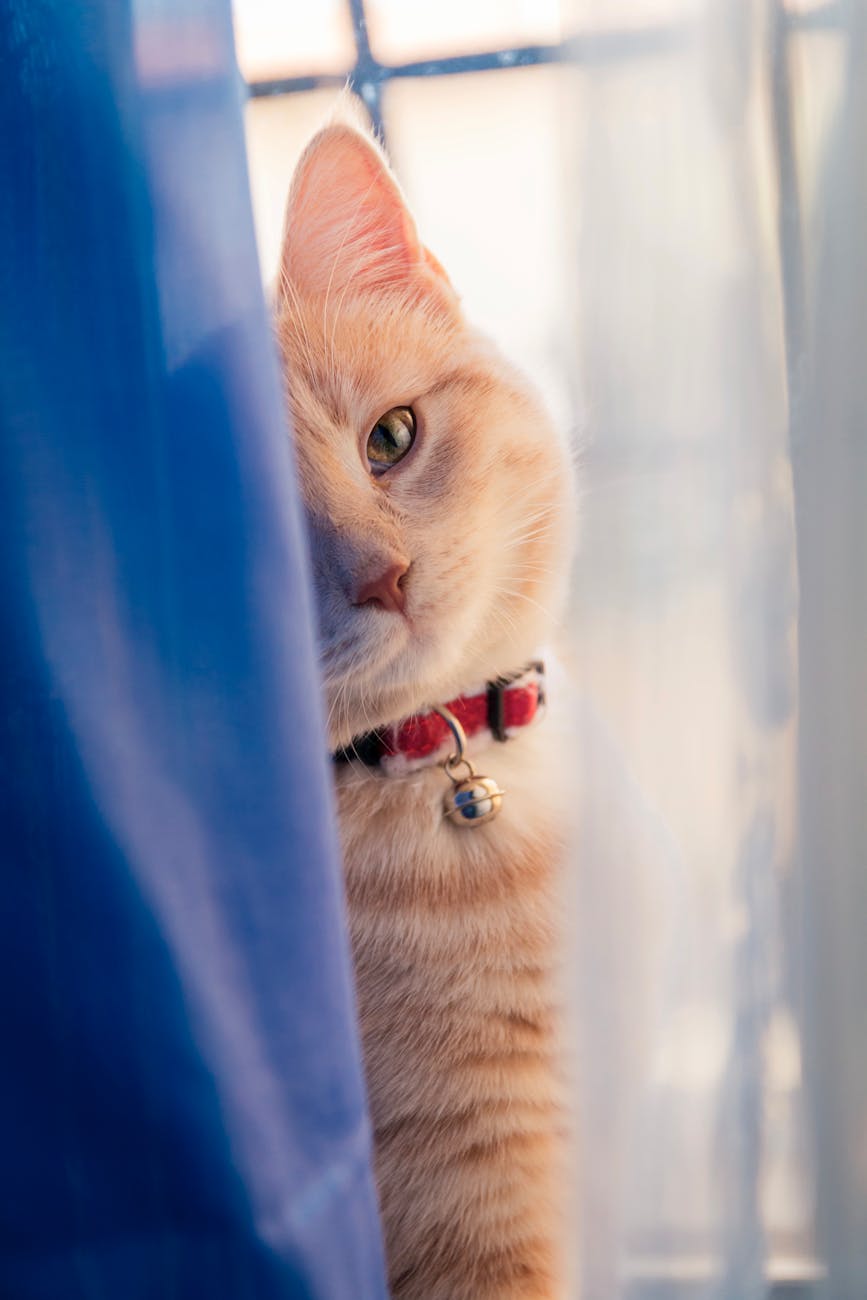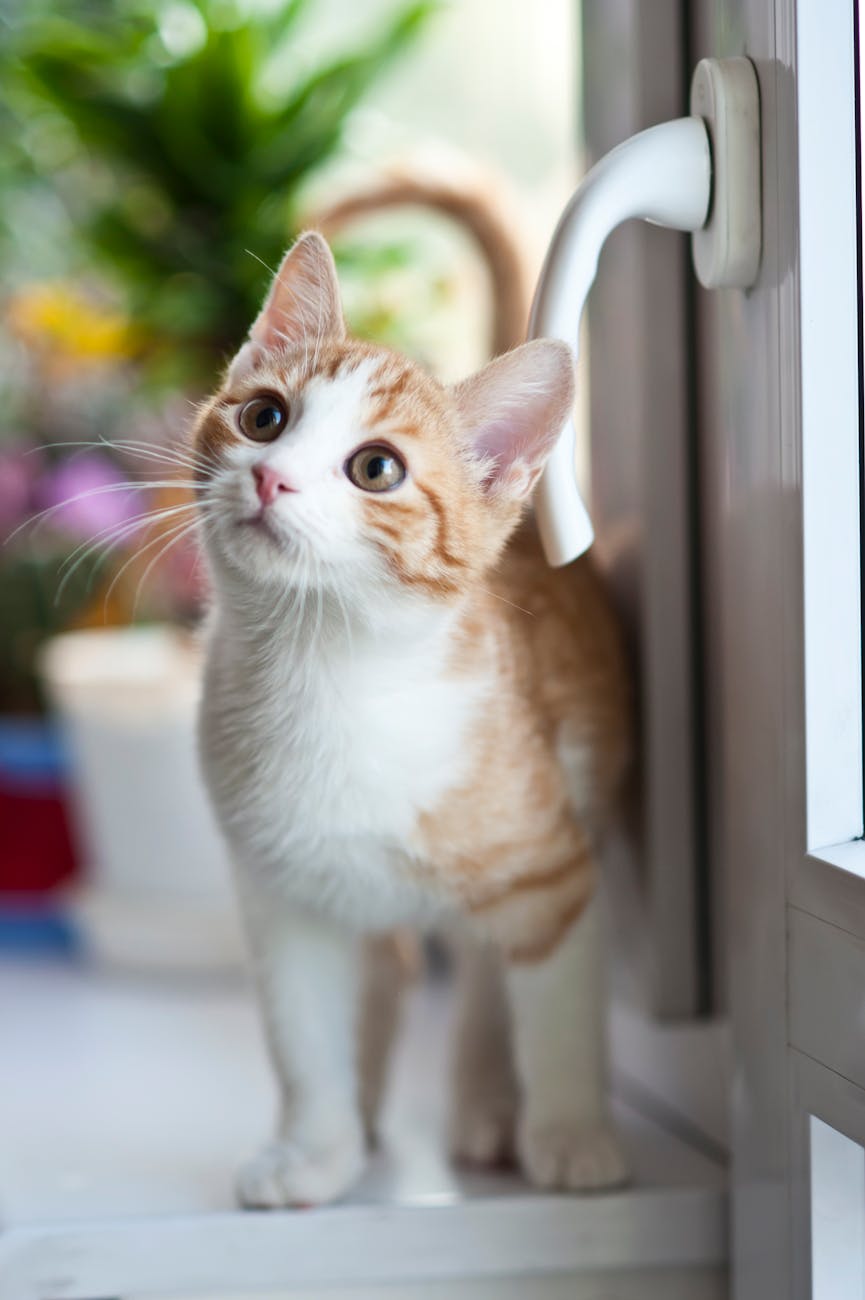Lysine for cats plays a crucial role in promoting your feline’s overall health. This essential amino acid supports immune function, helps prevent viral infections, and aids in the absorption of calcium. Many cat owners may not realize that lysine can be particularly beneficial for cats suffering from respiratory issues or stress-related ailments. By exploring the advantages of lysine supplementation and understanding the right dosage, you can enhance your pet’s well-being. This article will delve into the benefits, uses, and guidelines for lysine, ensuring your furry friend leads a healthier life.
Understanding Lysine and Its Importance for Cats
Lysine for cats is an essential amino acid that plays a crucial role in supporting their overall health. Unlike some nutrients, cats cannot produce lysine on their own, making it vital to obtain it through their diet or supplementation. Here’s why lysine is important for your feline companion:
- Immune System Support: Lysine helps enhance the immune response, protecting cats from illnesses and infections.
- Viral Inhibition: It can specifically hinder the replication of certain viruses, such as feline herpesvirus (FHV), which is common in cats.
- Protein Synthesis: As a building block for proteins, lysine contributes to muscle development and tissue repair, promoting overall vitality.
In summary, incorporating lysine for cats into their diet can lead to healthier, happier pets. This essential amino acid’s benefits not only support their immune system and recovery but also improve their quality of life.

Benefits of Lysine Supplementation for Feline Health
Lysine for cats offers a range of significant health benefits that can enhance your feline friend’s quality of life. Here are some key advantages of lysine supplementation:
- Supports Immune Function: Lysine strengthens the immune system, helping your cat fight off infections and illnesses more effectively.
- Reduces Viral Shedding: Particularly useful for cats with feline herpesvirus, lysine can reduce the viral load, leading to fewer outbreaks.
- Promotes Healthy Skin and Coat: Adequate lysine levels contribute to a vibrant, healthy coat and can alleviate skin issues triggered by viral infections.
- Enhances Overall Well-Being: By supporting better nutritional balance, lysine plays a crucial role in maintaining your cat’s overall health and energy levels.
In summary, adding lysine for cats into their diet can provide robust support for their immune health, reduce the frequency of viral flare-ups, and improve skin condition. Therefore, consider incorporating lysine supplements as part of your cat’s wellness regimen for optimal health benefits.
Common Conditions Treated with Lysine for Cats
Lysine for cats plays a vital role in managing various health conditions, particularly those related to viral infections. Here are some common ailments where lysine shows promise:
- Feline Herpesvirus (FHV-1): Lysine supplementation can help reduce the severity and frequency of flare-ups.
- Upper Respiratory Infections: Cats with recurrent respiratory issues often benefit from increased lysine intake, which may help mitigate symptoms.
- Chronic Gingivostomatitis: Some evidence suggests lysine can be part of a comprehensive approach to managing this inflammatory condition in the mouth.
Comparison of Common Conditions
| Condition | Benefit of Lysine |
|---|---|
| Feline Herpesvirus (FHV-1) | Reduces flare-ups and severity |
| Upper Respiratory Infections | May alleviate symptoms and duration |
| Chronic Gingivostomatitis | Supports overall oral health management |
In summary, lysine for cats not only supports immune function but also provides valuable assistance in treating specific health issues. Consulting your veterinarian is crucial for tailoring the appropriate dosage and supplementation strategy for your furry friend.
Recommended Dosage and Administration Guidelines
When introducing lysine for cats into your pet’s diet, it’s essential to follow the recommended dosage to ensure safety and effectiveness. Here are some key points to consider:
Typical Dosage: Generally, a daily dose of 250 to 500 mg of lysine per cat is recommended. This range may vary based on your cat’s age, weight, and specific health conditions.
Forms of Administration: Lysine supplements come in various forms, including:
- Powder: Easily mixed with food.
- Chews: Tasty treats that most cats enjoy.
- Tablets: Simple to administer, but some cats might resist.
Frequency: Administer lysine daily, as consistency helps maintain optimal levels in your cat’s system.
Adjustment for Conditions: If your cat suffers from specific health issues, consult your veterinarian, as they may suggest adjusting the dosage.
Quick Tips for Administering Lysine:
- Start with a lower dosage and gradually increase as needed.
- Ensure the chosen form aligns with your cat’s preferences to encourage compliance.
- Monitor for any adverse reactions after starting lysine for cats supplementation.
Taking these guidelines into account will help your feline friend reap the full benefits of lysine supplements.

Food Sources of Lysine for Cats
Ensuring your cat receives sufficient lysine is essential for their health and well-being. While lysine for cats is available in supplement form, many natural food sources can also provide this vital amino acid. Here are some of the best options:
- Meat:
- Chicken
- Turkey
- Beef
- Fish:
- Tuna
- Salmon
- Dairy:
- Cheese
- Yogurt
Moreover, specific commercial cat foods often contain added lysine for enhanced nutritional value. When choosing food, look for high-quality protein sources, as these foods typically offer more lysine.
Comparison of Lysine Content in Food Sources
| Food Source | Lysine Content (approx. mg per 100g) |
|---|---|
| Chicken | 2,128 |
| Turkey | 2,120 |
| Beef | 1,970 |
| Tuna | 2,210 |
| Salmon | 2,194 |
In summary, incorporating these lysine-rich foods into your cat’s diet not only supports their health but can also reduce the need for supplemental lysine for cats when balanced properly. Always consult your veterinarian for tailored advice and recommendations.
Potential Side Effects and Precautions
While lysine for cats can offer numerous health benefits, it’s essential to be aware of potential side effects and take necessary precautions:
Common Side Effects:
- Mild gastrointestinal issues, such as diarrhea or vomiting.
- Changes in appetite or mild lethargy.
Less Common Side Effects:
- Allergic reactions, which might manifest as itching or swelling.
- Increased urination in rare cases.
Precautions to Consider:
- Consult Your Veterinarian: Always discuss lysine supplementation with a vet, especially if your cat has existing health issues or is on medications.
- Monitor Dosage: Be cautious with dosage. Follow recommended amounts based on your cat’s weight and specific needs to avoid over-supplementation.
- Consider Underlying Conditions: Felines with kidney issues or hypercalcemia should use lysine cautiously.
Key Takeaway:
Although lysine for cats provides various therapeutic benefits, monitoring your cat’s response to supplementation is critical. Consult your veterinarian to ensure safe and beneficial use.
Consulting Your Veterinarian About Lysine Use
Before introducing lysine for cats into your pet’s diet, consulting your veterinarian is crucial. Here’s why:
- Professional Assessment: Your vet can evaluate your cat’s overall health, determining if lysine for cats is appropriate.
- Correct Dosage: The right dosage varies by individual feline needs, and your veterinarian can provide tailored recommendations.
- Monitor Interactions: If your cat is on other medications, your vet will assess potential interactions with lysine.
Key Considerations:
- Discuss any prior health conditions your cat may have, such as kidney disease, which might affect lysine use.
- Regular veterinary check-ups can help you observe any changes in your cat’s health status after starting lysine supplementation.
In summary, while lysine for cats offers various benefits, a veterinary consultation ensures safe and effective use tailored to your cat’s specific needs. This step helps in maximizing health advantages while minimizing any risk of side effects.

Success Stories: Cats Benefiting from Lysine Supplements
Many cat owners have observed remarkable improvements in their pets’ health after incorporating lysine for cats into their diets. Here are a few inspiring success stories:
Story 1: Felix’s Respiratory Relief
- Felix struggled with recurrent respiratory infections. After starting a lysine supplement, his owner noticed a significant decrease in symptoms. Now, Felix enjoys better breathing and increased energy.
Story 2: Bella’s Eye Health
- Bella, a 5-year-old Siamese, frequently experienced eye infections. By adding lysine for cats to her routine, her vet reported fewer flare-ups and improved overall eye health. Bella’s owner delights in seeing her vibrant and playful.
Story 3: Max’s Viral Combat
- Max had a history of feline herpesvirus. After consistent lysine supplementation, his symptoms reduced dramatically. Max’s owner praises lysine for cats, noting that it has helped alleviate his stress and enhance his quality of life.
These stories highlight how lysine supplements can positively affect cats’ health. Each success stems from tailored approaches, emphasizing the importance of consulting with a veterinarian to ensure optimal use.
Frequently Asked Questions
What is lysine and why is it beneficial for cats?
Lysine is an essential amino acid that plays a critical role in various bodily functions for cats, including protein synthesis, enzyme production, and immune system support. It is particularly beneficial for cats that suffer from feline herpesvirus (FHV), as lysine helps to inhibit the replication of this virus, potentially reducing the severity and frequency of symptoms. Additionally, lysine may aid in promoting overall health, supporting the growth and development of tissues, and enhancing the cat’s overall well-being.
How should I administer lysine to my cat?
Administering lysine to your cat can be done in various forms, including powders, treats, or capsules. The choice of administration largely depends on your cat’s preferences and dietary habits. It is recommended to mix the powder into your cat’s food or offer lysine treats that they may find more appealing. Ensuring proper dosage as recommended by your veterinarian is crucial, as they can provide tailored advice based on your cat’s health needs and weight, maximizing the benefits of lysine supplementation.
What is the recommended dosage of lysine for cats?
The recommended dosage of lysine for cats generally ranges from 500 mg to 1000 mg per day, but it can vary based on the cat’s size, health condition, and the specific formulation of the lysine supplement. It is essential to consult with your veterinarian before starting any supplementation to ensure you provide the correct dosage tailored to your cat’s individual needs and to avoid any potential side effects or interactions with other medications.
Are there any side effects of lysine for cats?
Lysine is generally considered safe for cats when administered in appropriate dosages. However, some cats may experience mild side effects, including gastrointestinal upset, diarrhea, or nausea. In rare cases, excessive intake of lysine may lead to an imbalance of other amino acids in the diet. It’s crucial to observe your cat closely after starting supplementation and consult with your veterinarian if you notice any adverse reactions to ensure your cat maintains optimal health.



